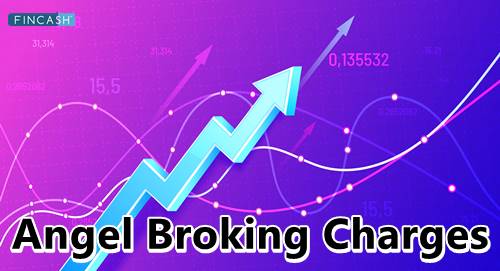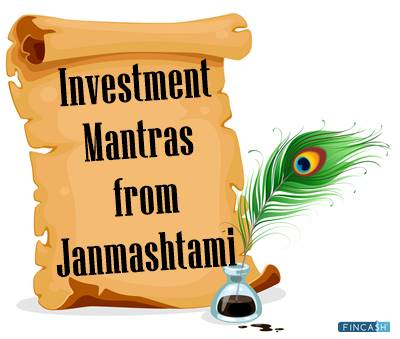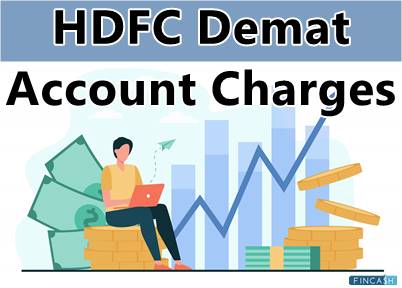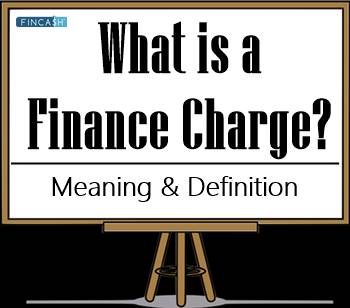
Table of Contents
- What is Angel Broking?
- Pros and Cons of Angel Broking Account
- What is a Brokerage Calculator?
- How is Brokerage Calculated?
- Explaining Angel Broking Charges
- Angel Broking Charges List 2025
- BSE Transaction Charges
- Angel Broking DEMAT Account Charges
- Angel Broking vs Zerodha
- Angel Broking vs Groww
- Conclusion
- Frequently Asked Questions (FAQs)
- 1. How does angel broking reduce broking charges?
- 2. How to change brokerage plan in angel broking?
- 3. Are there any brokerage charges in angel broking?
- 4. Is angel broking safe?
- 5. What is the margin in angel broking?
- 6. What is the DP name of angel broking?
- 7. What is the charge for account opening in Angel One?
- 8. What are the documents needed to open a DEMAT account with Angel One?
Learn Everything About Angel Broking Charges 2025
A Trading Account is an investment account that holds securities, cash, or other assets. It is most often used to refer to a Day Trader's primary account. Because these investors regularly purchase and sell assets, often within that Market cycle, their accounts are subject to particular regulations. The assets maintained in a trading account are distinct from those held in a long-term purchase and hold plan.

To open a trading account, you must provide some basic personal information, such as your social security number and contact information. Other restrictions may apply to your brokerage firm based on the jurisdiction and the nature of its operation.
What is Angel Broking?
Angel Broking is an Indian full-service retail broker that offers online discount brokerage services. Among the services offered by the business are stock and commodity brokerage, investment counselling, margin finance, loans against shares, and financial product distribution.
Angel Broking changed its brokerage programmes in November 2019 to compete with cheap stock brokers like Zerodha. It is well-known for its high-quality trading software and financial advice. Angel is the first large-scale full-service broker to offer its customers discounted brokerage fees.
Pros and Cons of Angel Broking Account
It is extremely important for you to know about how angel broking works before you go ahead and create an account. To help you with that, here are some pros and cons that you must keep in mind.
Advantages of Angel Broking
- Research and advice are provided for free, and experts offer detailed, weekly and specialised reports.
- A wide Range of investment alternatives is available, including equity trading, F&O, commodities, PMS, Mutual Funds, and insurance.
- It has a presence in hundreds of cities across India.
- It has a very large network of sub-brokers and franchises
- For novices, training and handholding are offered.
- Securities are used as Collateral.
- Any money transfers are free of charge.
Disadvantages of Angel Broking
- Angel Broking still does not have a 3-in-1 account.
- Broker-assisted trades are Rs 20 more for each performed transaction.
What is a Brokerage Calculator?
A brokerage calculator is a great tool that provides numerous benefits to investors. It is factual and offers the consumer clear and relevant information without any hidden terms and restrictions. When doing a transaction, timing is of the highest importance. Investors have an advantage when using a brokerage calculator since they can see the costs in real-time, even before making a deal. The brokerage calculator also shows sufficient information to allow the user to compare the pricing of rivals.
A brokerage calculator, therefore, assists investors in determining how much they will spend for carrying out a specific transaction and, as a result, making wise investment decisions. It also offers the client accurate and transparent information without any hidden restrictions and limitations.
Even before engaging in the transaction, the investor can learn about the fees. Once the data has been input, the response time is quick. The brokerage calculator also provides information for the investor to examine the cost of the competitors.
Talk to our investment specialist
How is Brokerage Calculated?
Brokerage is the sum paid by the investor to the broker on the execution of a certain trade. Depending on the Depository participant – DP, the costs might be either a percentage or a Flat fee; most of the time, a brokerage charges calculator is used.
Explaining Angel Broking Charges
In Angel one, the brokerage fees have been simplified by implementing flat fees on Intraday trading and making the security delivery free to the Demat account. However, there are some such Taxes and charges that are being collected from you. Here is a list of all the charges that will be applicable to the transaction.
Keep in mind that these charges can change as per the regulatory and governmental directives in the future.
1. Security Transaction Tax (STT)
It is a direct tax that is levied on each security transaction in the exchange. STT is collected by the broker and is charged on both selling and buying the equity delivery and on selling on F&O and intraday.
2. Depository Participant (DP) Charges
INR 20 + GST is applied on every scrip, regardless of volume when stocks get sold from the holding. The depository participant charges get collected by the depository participant and the depository, which is Angel One.
3. Turnover / Transaction Charges
Generally, these charges are levied by exchanges, such as NCDEX, MCX, BSE and NSE. The clearing charges are levied by clearing members for settling trades that have been done by the clients.
4. Account Maintenance Charges
The monthly charges for account maintenance are fixed at Rs. 20 + taxes.
5. Call and Trade
To all the executed orders that are placed on the phone, an additional charge of Rs. 20 is applied.
6. SEBI Charges
The Security and Exchange Board of India (SEBI) puts a fee on security transactions for regulating the market.
7. Offline Trading
Trades that are not executed on the internet by clients are regarded as offline trades. These include contract expiry, auto square-off, RMS square-off, margin square-off, and more.
8. GST
A standard 18% of GST is applied on transaction charges, brokerage, risk management charges and SEBI.
9. Stamp Charges
From July 1 2020, the existing system of applying stamp charges at varying states according to the Stamp Duty Act of 1899 on instruments that got transacted in the stock exchange is replaced with newly uniformed stamp duty rates in currency, futures and options, debentures, shares, and other Capital assets.
Angel Broking Charges List 2025
| Angel One Charges | Equity Delivery | Equity Intraday | Equity Futures | Equity Options |
|---|---|---|---|---|
| Brokerage | 0 | INR 20 per executed order or 0.25% (whichever is lesser) | INR 20 per executed order or 0.25% (whichever is lesser) | INR 20 per executed order or 0.25% (whichever is lesser) |
| STT | 0.1% on both buying and selling | 0.025% on selling | 0.01% on selling | 0.05% on premium selling |
| Transaction Charges | NSE: 0.00335% on turnover value (buying and selling) #NSE: 0.00275% on turnover value (buying and selling) BSE: charges vary accordingly | NSE: 0.00335% on turnover value (buying and selling)#NSE: 0.00275% on turnover value (buying and selling).BSE: charges vary accordingly | NSE: 0.00195% on total turnover value | NSE: 0.053% on premium value |
| DP Charges/ Demat Transactions | INR 20 for each script only on sell | - | - | - |
| GST | 18% (on SEBI, charges, DP transaction and brokerage) | 18% (on SEBI charges, transaction and brokerage) | 18% (on SEBI charges, transaction and brokerage) | 18% (on SEBI charges, transaction and brokerage) |
| SEBI Charges | INR 10 per crore | INR 10 per crore | INR 10 per crore | INR 10 per crore |
| Stamp Duty Charges | 0.015% of turnover value (buyer) | 0.003% of turnover value (buyer) | 0.002% of turnover value (buyer) | 0.003% on premium value (buyer) |
Note: Transaction charges will be applicable to all of the stocks in the normal equity market segment other than stocks included in Graded Surveillance Measures (GSM), debt-oriented exchanges traded funds, Nifty Next 50 index constituents, and NIFTY 50.
BSE Transaction Charges
| Scrip Group | Charges |
|---|---|
| A, B | 0.00345% of the turnover value (buying and selling) |
| E, F, FC, G, GC, I, IF, IT, M, MS, MT, T, TS, W | 0.00275% of the turnover value (buying and selling) |
| XC, XD, XT, Z, ZP | 0.1% of the turnover value (buying and selling) |
| P, R, SS, ST | 1% of the turnover value (buying and selling) |
Angel Broking DEMAT Account Charges
The Demat account charges are categorise into two categories – operational charges (AMC, Tax, and more) and transactional charges or charges collected by the broker for carrying out the trades for clients.
| Angel One Charges | Charges |
|---|---|
| Account Opening Fees | Free |
| Brokerage On Delivery Trade | Free |
| Account Maintenance Charges | Free For 1st Year. From 2nd Year Onwards - Non-BSDA Clients Rs. 20 + Tax / Month. For BSDA (Basic Services Demat Account) Clients: - Holding Value Less Than 50,000 : NIL - Holding Value Between 50,000 To 2,00,000 : Rs. 100 + Tax / Year |
| DP Charges | Rs. 20 Per Debit Transaction Rs. 50 Per Debit Transaction For BSDA Clients |
| Pledge Creation / Closure | Rs. 20 Per ISIN Rs. 50 Per ISIN For BSDA Clients |
| Demat | Rs. 50 Per Certificate |
| Remat | Rs. 50 Per Certificate + Actual CDSL Charges |
| Call & Trade / Offline Trade | Additional Charges of Rs. 20 / Order |
Angel Broking vs Zerodha
If you are looking for an advice broker but do not want to trade, Angel broking is a fantastic choice. However, if you are a trader or want to start trading, Zerodha is the ideal alternative.
- Zerodha is a discount brokerage firm that was established in 2010. It provides trading on the NSE, BSE, MCX, and NCDEX. It has 22 branches in India.
- Angel Broking trading account opening fees are Rs 0 (free), whereas Zerodha account opening fees are Rs 200. Angel Broking's AMC for a Demat Account is
Rs. 240, whereas Zerodha's AMC for a Demat Account isRs. 300. - Angel Broking's brokerage costs for equities are
Rs. 0 (Free), and the same is with Zerodha's brokerage charges. And intraday isRs.20 perexecuted order or.03%, whichever is lesser. - With a single login, the Angel Broking trading platform may be used to manage the wealth and account of the entire family.
- You may get value-added services from Zeordha's official partners, such as Screeners, Sensibull, Stock reports, and SmallCase, for a little fee. A monthly stock report, for example, costs Rs. 150.
- As a result, Zerodha is appropriate for traders that conduct their own research. New traders who are willing to pay a premium for additional services can also open an account with Zerodha.
Angel Broking vs Groww
Groww is a broker located in Bangalore that provides online services for Investing in equity, IPOs, and direct mutual funds. It is a stockbroker registered with SEBI under NextBillion Technology Limited and is also a depository member of the NSE, BSE, and CDSL.
Groww originated as a direct mutual fund investment platform. By the mid-2020s, its product Offering had grown to include equities trading. Customers may also use the company to invest in digital gold, US equities, and fixed deposits.
Groww levies a fee of
Rs. 20or0.05%for each transaction. You pay a maximum ofRs. 20as a brokerage for an order, regardless of quantity or value. Groww provides free mutual fund services, with no fees for investing or redeeming mutual funds.Groww has its own trading platform, Groww (web and the mobile trading app provides its investors with a smooth trading experience. It is a secure software with 128-bit encryption.
Conclusion
Angel broking is one of the safest retail brokers, so if you want to enter into high-quality trading services while also needing financial guidance, you know where to go. Opening an angel broking account is also quite uncomplicated, and you don't need a long list of papers; just a few key ones and you're set to go.
Frequently Asked Questions (FAQs)
1. How does angel broking reduce broking charges?
A: Angel Broking has a fixed brokerage plan (Angel iTrade Prime Plan) that costs zero commission on equity delivery transactions and a flat Rs 20 per completed order on all other segments.
2. How to change brokerage plan in angel broking?
A: The brokerage plan of angel broking can be altered by visiting a nearby angel office.
3. Are there any brokerage charges in angel broking?
A: Under its iTradePrime plan, Angel Broking charges a flat Rs 20 per completed order for equities delivery trading and a flat Rs 0 (free) for all other sectors. Angel Broking charges a fixed fee for each processed order. The fixed charge applies regardless of the order's trade value or the number of items.
4. Is angel broking safe?
A: Angel Broking is a reputable stock broker for trading and investing. Angel Broking is one of the most important stock brokers. They have been in business since 1987. They are also BSE, NSE, and MCX members.
5. What is the margin in angel broking?
A: The act of purchasing on margin indicates that the trader only pays a fraction of the asset value, with the remainder covered by the margin loan. Margin accounts allow you to leverage; for example, if the margin is 10%, you can invest up to ten times the deposit in your Margin Account.
6. What is the DP name of angel broking?
A: Open an Instant Account and begin trading right away. Angel Broking is a CDSL Depository Participant (DP), one of India's two central depositories. It has the CDSL DP ID 12033200. CDSL manages all Demat accounts created with Angel Broking.
7. What is the charge for account opening in Angel One?
A: The account opening charges with Angel One is nil. Thus, you will not have to pay anything from your pocket.
8. What are the documents needed to open a DEMAT account with Angel One?
A: You would need proof of address, proof of identity, proof of Income, proof of Bank account and PAN.
All efforts have been made to ensure the information provided here is accurate. However, no guarantees are made regarding correctness of data. Please verify with scheme information document before making any investment.












